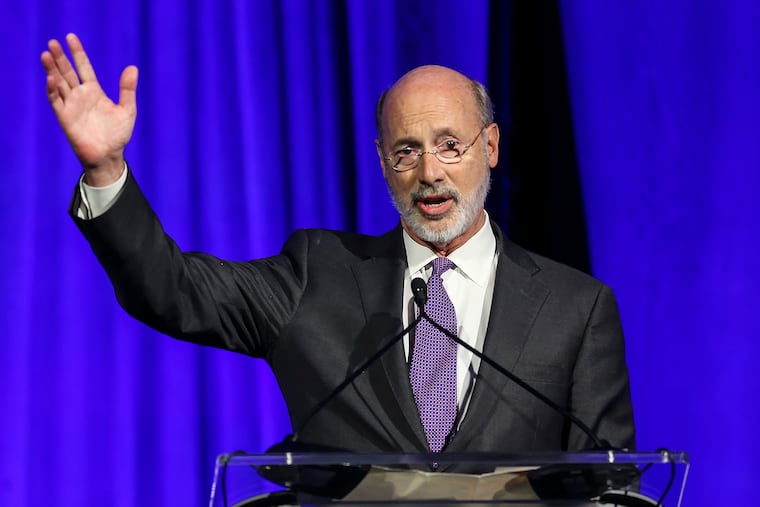Pa. schools could face devastating budget cuts due to COVID | Opinion
Across the 61 school districts in the Philadelphia region, local revenues for schools could drop by nearly $400 million.

At the end of the Great Recession, Pennsylvania’s public schools suffered a crushing $1 billion cut that set back the quality of education in the state’s poorest school districts for nearly a decade. Now, the risk of reopening schools with severe teacher shortages, no counselors or nurses, swollen class sizes, and none of the critical enrichment options are once again very real. Schools across the state are bracing for cuts easily twice as large as those in 2011. This time around, lawmakers must do better.
The damage visited upon Pennsylvania school districts by that massive state cut has become difficult to ignore during the pandemic. Wealthier school districts — not dependent on state funds so not affected by the state cut — rapidly shifted to distance learning, coupled with virtual instruction. Meanwhile, in poorer communities, the cost of giving students computers and wireless access is out of reach.
Now, Pennsylvania lawmakers are readying for the battle over a solution to the COVID-induced state deficit, expected to be well over $3 billion. Add to that, school districts are projecting a $1 billion drop in resources due to waning local tax collections, according to the Pennsylvania Association of School Business Officials. They estimate that across the 61 school districts in the Philadelphia region, local revenues for schools could drop by nearly $400 million.
Schools that educate the largest share of low-income students in the state were inadequately funded well before the pandemic. The cost to keep students and staff safe will require additional funding, putting an even heavier burden on districts that can ill-afford to carry them.
COVID cleanup and social distancing costs will be on top of the expenses our schools must meet to play in a central role in helping children achieve their potential. Mike Turzai, speaker of the state House, said it best in a pointed letter to the Pennsylvania secretary of education: “All kids have dreams, no matter their special needs, backgrounds, race, gender, age, and/or zip code. They work hard. Want to succeed. They enjoy playing instruments in real concerts and recitals. Act and sing in musicals. ... Compete in SkillsUSA competitions. Do lab experiments. Run track. Throw javelin. Play softball and baseball .…”
It is safe to say that in this crisis, it seems we’ve all come to understand the extensive role that public schools play in the lives of our children. That begs the question of why the House leaders are moving quickly to freeze property taxes, knowing all too well that doing so would mean massive cuts to the school activities the speaker, and most citizens, hold so dear.
The good news is that most state lawmakers are actively making the case that the economy cannot fully reopen without opening the doors of our schools. But what remains to be seen is if all lawmakers can reach an agreement, as they balance the budget and deploy COVID relief funds.
State lawmakers must commit to parents, students, and our teachers to make sure that quality public education does not become another casualty of this terrible virus. That means:
Refusing to pass any legislation that will have a negative impact on the quality of education provided to every student.
Passing a budget that includes the governor’s proposed increase in funding, so schools can avoid cuts.
Finding a real solution, at the federal or state level, to remediate the devastating $1 billion drop in local funds for our schools.
Now more than ever, we need extraordinary leaders who reject superficial approaches to complex problems. With so many threats inching closer and closer, politics as usual in the face of this extraordinary crisis can only result in lawmakers failing our children and our communities.
Donna Cooper is the executive director of Public Citizens for Children and Youth.